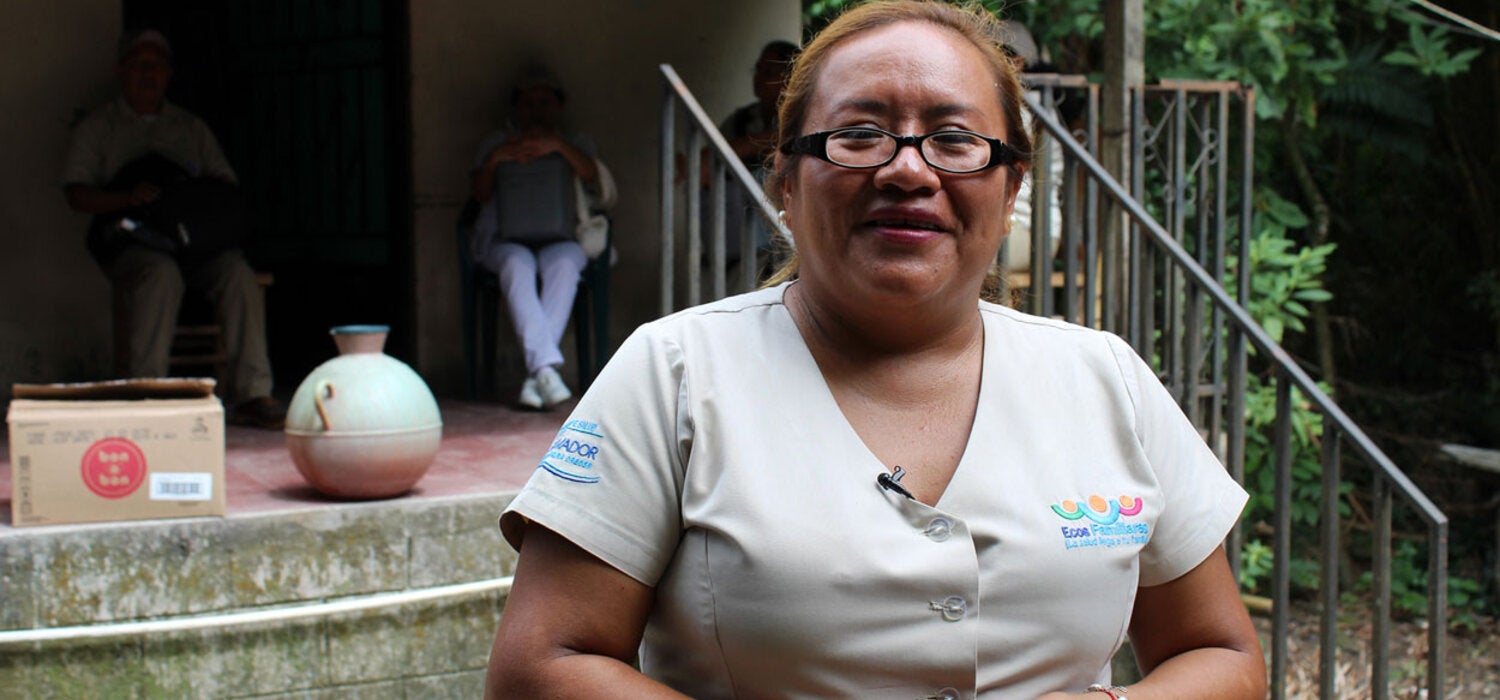Nancy Vides, El Salvador
One part education, one part guidance on healthy lifestyles, another part self-care for preventing disease; a bit of follow-up on medication, and some community organization; this is Nancy Vides´s recipe for health promotion in her community of Mejicanos in San Salvador, El Salvador.
"These are all factors that help us ensure our community is taken care of," says Nancy.
The 43-year-old is one of El Salvador's 3,000 health promoters working as part of the country´s Family Health Community Teams (ECOS), created in 2009 to help reach the more than 2 million people with difficulty accessing health services around the country.
During her 7 years as a health promoter, Nancy has overcome both geographic and cultural barriers in order to do about 200 home visits a month to the 740 individuals who live in her area. Her duties span a wide range of tasks, including vaccinating, helping women prevent unwanted pregnancy, preventing cervical cancer, implementing best practices to prevent child mortality, teaching about clean water and talking to neighbors about preventing chronic diseases.
Another of Nancy´s responsibilities includes checking on pregnant women. Recounting the time she saved the life of her 37-year-old neighbor Ms. Damaris, who was pregnant and admitted to the Intensive Care Unit for high blood pressure, Nancy speaks of the arrangements she made to take her patient to the hospital and to follow up with her husband, who became angry when Nancy took her to the hospital without informing him first.
"The husband was extremely upset," says Nancy. "But once he saw her and could speak to her, he felt very sorry for getting angry and apologized. He thanked us for saving his wife and baby... if we had not taken her in to be treated, she and the baby would have died."
The experience with Damaris and her baby impacted the whole community, Nancy says. It served as a wakeup call for people to understand the importance of taking care of themselves and following advice to keep them healthy. But more than that, it also helped build faith between the health promoters and the communities they serve.
"After such a shock there comes a moment of trust and gratefulness from the families... the community now believes more in our work... and because of this, a door is opened that allows them to share sensitive information, respect our role, and strengthen the community."
"For us, this is a success, because it gives us more credibility and shows trust with the team," she adds.
For Nancy and her fellow health promoters, keeping their community healthy is not just a hobby. "It's our raison d'être," she says. It goes beyond the obligation she feels to the parents in the community, to a deep "conviction that [health promotion] is the only way to guarantee the health of the children in the country."

